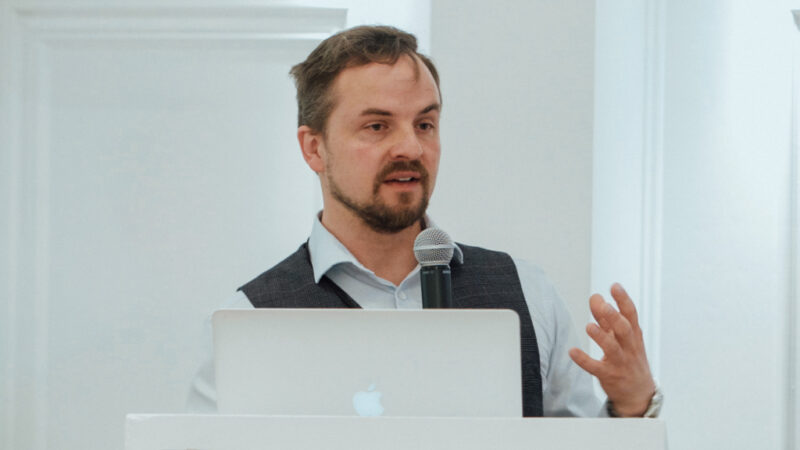Jul 2, 2024
Where Are They Now: Mike Sapieha — Bringing Innovation from the Bench to the Bedside for Aging Eye Diseases

Dr. Przemyslaw (Mike) Sapieha wants to move new discoveries from the lab bench to patients, where they can make a difference. And as the University of Montreal Endowed Chair in Translational Vision Research and director of the neurovascular eye disease research unit at Hôpital Maisonneuve-Rosemont in Montreal, he has made seminal contributions to the understanding of eye diseases like age-related macular degeneration (AMD) and diabetic eye disease.
Dr. Sapieha’s lab studies blood vessel growth in the eye and how uncontrolled growth can lead to eye diseases and vision loss. Work from his lab has led to development of a potential new therapy for diabetic macular edema, which is being tested in a clinical trial by Unity Biotechnology, where Dr. Sapieha is the Chief Scientist. Other work from his lab led to the foundation of the first biotech focused on vascular regeneration, SemaThera Inc, resulting in a licensing agreement and partnership with the pharmaceutical giant Roche to help bring his fundamental research to patients.
Fighting Blindness Canada (FBC) has been proud to support some of Dr. Sapieha’s work over the years. As we continue our 50th anniversary celebrations we caught up with him to understand the impact of this research funding and how the field has changed since he started his career.
“In the 15 years since launching my lab, I have received two grants from FBC. I received my first full grant from the FBC in 2013, four years after becoming an independent investigator. This grant was on the role of fats in driving progression of AMD. The funding allowed me to make the link between the gut microbiome and the development of wet AMD, which led to the first scientific publication connecting poor gut-microbiome health to a retinal disease. I felt very grateful that FBC funded this work, as it allowed my research lab to explore new directions of research that were, at the time, less mainstream and harder to fund through more conventional federal and provincial funding schemes.”
“FBC funding is critical in the Canadian granting landscape as it provides research scientists with the only dedicated source of financing for eye research. It also helps create a community of devoted vision researchers and forges potential collaborations centered around diseases that lead to loss of sight and blindness.”
Dr. Sapieha reflected on the changes he’s seen in the field of vision research. “Perhaps the most exciting development was witnessing the anti-VEGF revolution for retinal vascular diseases such as AMD and diabetic retinopathy. From the mid-2000s, the landmark implementation of anti-VEGFs transformed the lives of hundreds of millions of individuals and ophthalmology in general. Specifically, retinal disease research evolved from a field that was highly reliant on surgical intervention to one where injectable drugs could change patient lives. These developments were the perfect example that work from the bench such as identifying the molecule VEGF as a driver of blood vessel growth and leakiness in the eye could be translated into drugs (anti-VEGF antibodies) and help patients.”
Dr. Sapieha is trying to build on and expand the success of anti-VEGFs and he shared what excites him when he looks forward. “There have since been several FDA-approved drugs for AMD and diabetic retinopathy with most still centering around anti-VEGFs. My current excitement and enthusiasm is around translating novel biologies that target new non-VEGF pathways into the clinic. Examples include senolytic drugs, Tie2 activators, Semaphorin modulators, WNT-agonists and more.
“I am also excited by the major advances in the fields of CRISPR-based gene editing for monogenic degenerative diseases of the eye (such as retinitis pigmentosa). Once optimized delivery systems are developed, these approaches may have great potential to help individuals with genetic diseases of the retina. The future is bright!”
Join the Fight!
Learn how your support is helping to bring a future without blindness into focus! Be the first to learn about the latest breakthroughs in vision research and events in your community by subscribing to our e-newsletter that lands in inboxes the beginning of each month.

